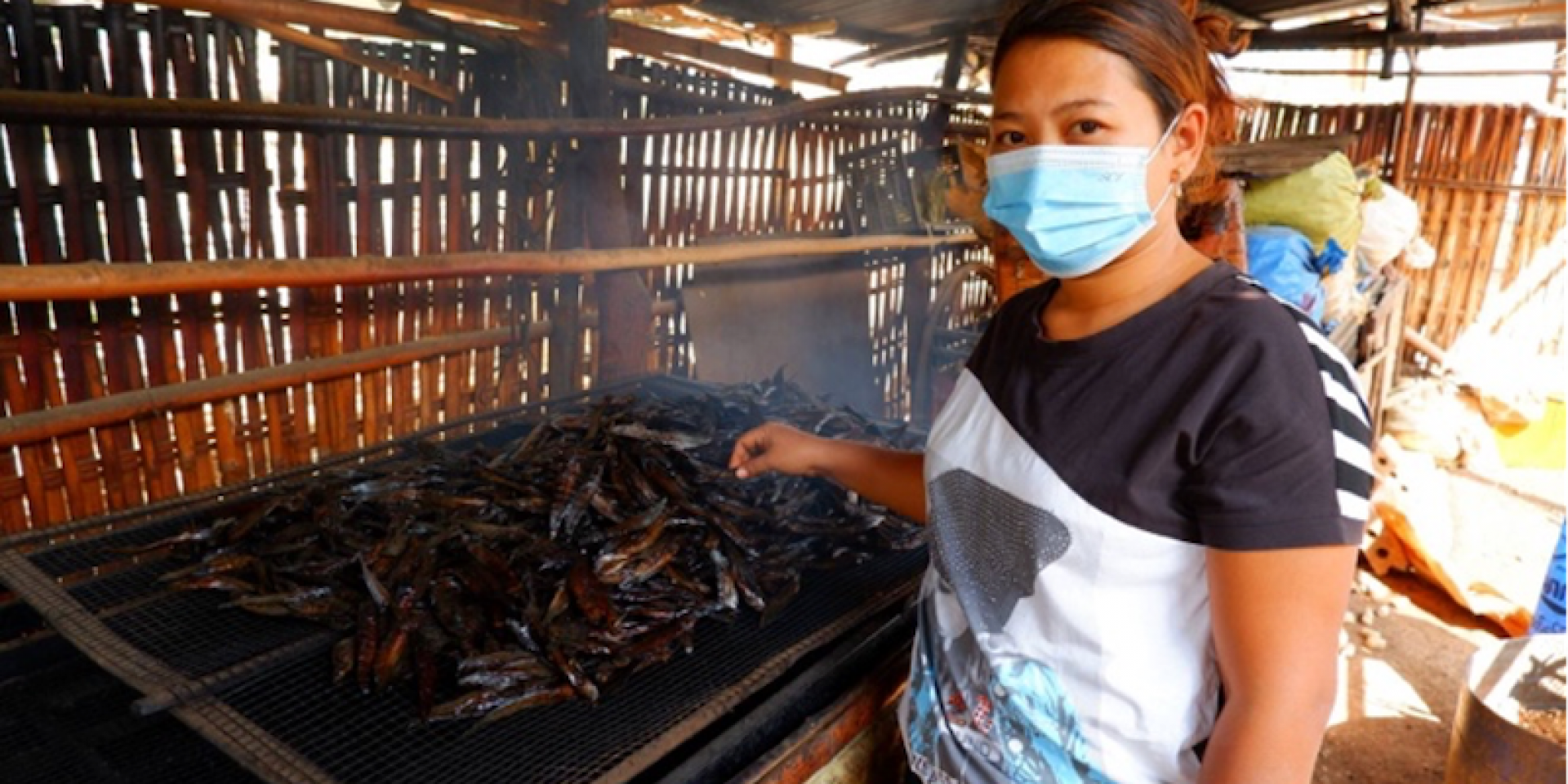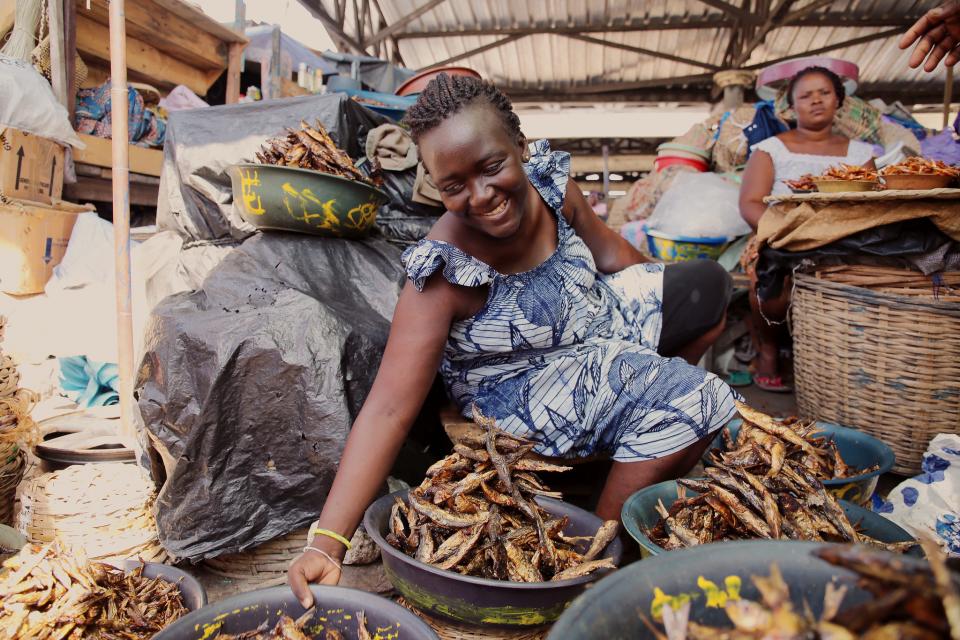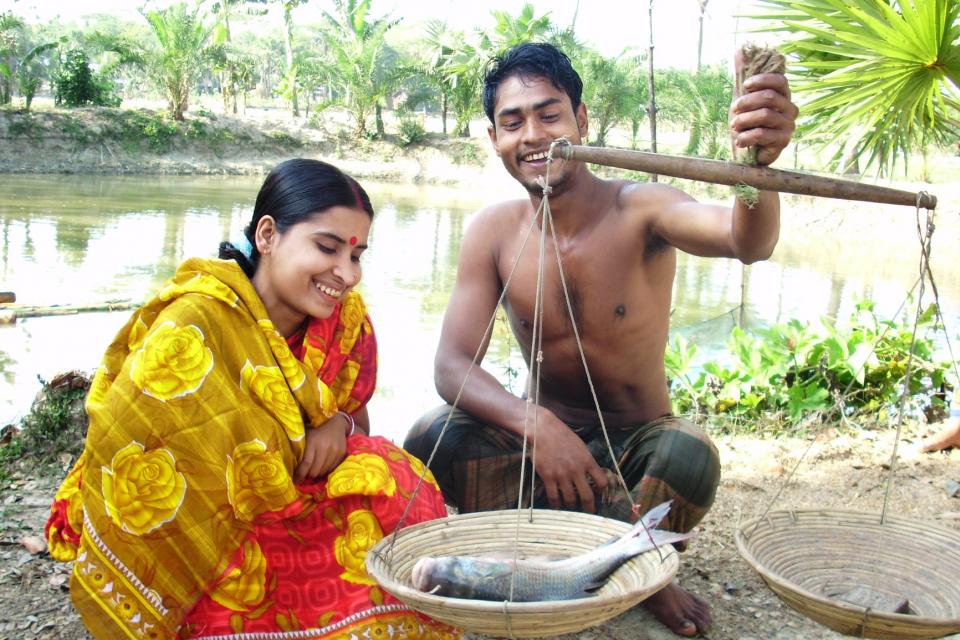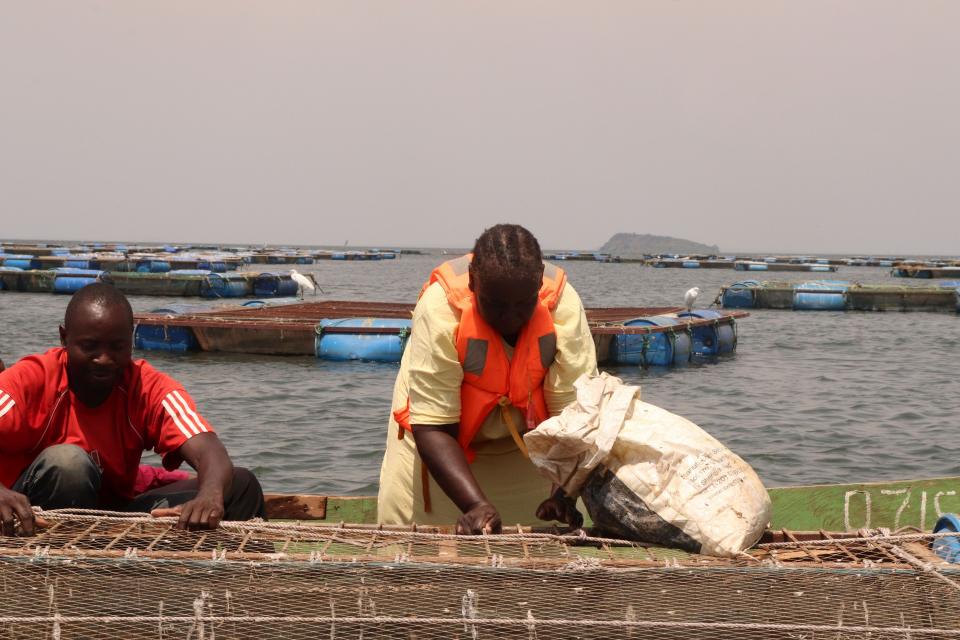Inspiring Stories: Win Chewa Htun

Inspiring stories is a series that focuses on the fish workers on the ground, highlighting their experiences, challenges and successes in the aquatic food sector. At WorldFish, we aim to highlight the millions of women and men involved in aquatic food systems, especially small-scale artisanal fisheries and aquaculture, and celebrate them for their contributions to food and nutrition security.
Like many women involved in fisheries, Win Chewa Htun (not her actual name) faces a world of gender barriers that have only been compounded by the COVID-19 pandemic. Hailing from Myanmar’s Shan State, Win purchases fresh fish from Inle Lake to dry and then sells the preserved fish onwards for profit. While such value-added fish products are a key way for women to earn money along fish supply chains, there is little protection or support for them in times of shocks, and even less recognition of specific gendered consequences of the pandemic. Here, Win talks about her challenges as a woman aquatic food processor and how she overcomes them.
What do you do for a living and what are the major challenges you face in this industry?
I am co-leading the family business of processing and marketing smoked fish with my husband. This is our primary source of income.
Fish is very important to my family because it is not only our source of livelihood but also a source of vital nutrients that help us accomplish our daily tasks. We decided to focus on a small, high-value, native catfish (Heteropneustes fossilis) found in the wetlands surrounding Inle Lake because it is popular among the locals.


